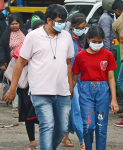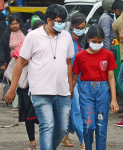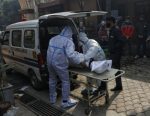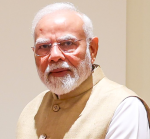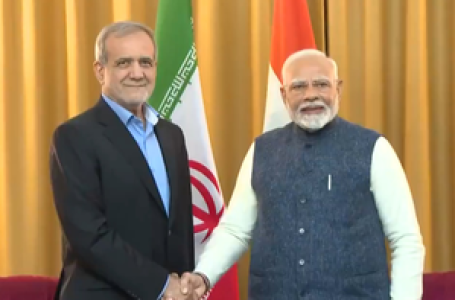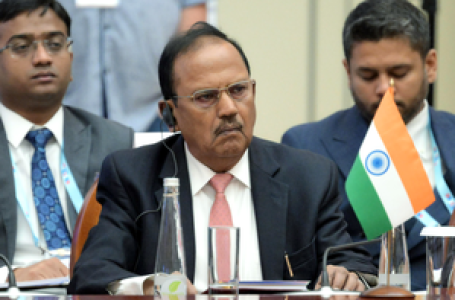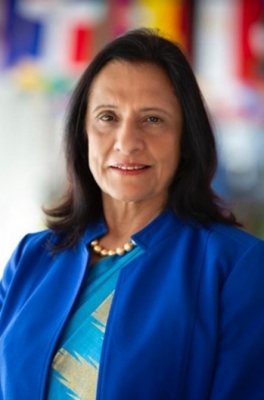
New Delhi: India has the systems in place to administer a large number of vaccine doses and achieve the mammoth feat of vaccinating all the country’s people by December 2021, says WHO Southeast Asia Regional Director, Dr Poonam Khetrapal Singh.
In an interview with IANS, Singh said that India can prevent another surge together with vaccination and adhering to Covid norms, while stressing the need for global vaccine equality to defeat Covid-19 worldwide.
She also spoke on reopening schools, and how the country has picked up on routine vaccination that was delayed due to the pandemic last year.
Excerpts from the interview:
Q: Do you think India will be able to achieve the mammoth feat of vaccinating all Indians by December 2021?
A: India has administered 80.95 crore (80,85,68,144) doses of Covid-19 vaccines since the launch of vaccination in January. Half of the country’s adult population has received at least one dose of the vaccine. More than 170 million people have received both doses and are fully vaccinated.
India has the capacity to administer a large number of doses and has demonstrated this by vaccinating over 10 million people on a single day, many times.
With more vaccine doses becoming available, India can scale up the pace of vaccination even further. It has the systems in place to do so.
Q: What is the impact of over 3 million children in India missing the first dose of diphtheria-tetanus-pertussis combined vaccine (DTP-1) in 2020?
A: Enhancing routine immunisation along with the ongoing efforts to rapidly increase Covid-19 vaccination coverage is important as all vaccines are life-saving.
In early 2020, the pandemic impacted essential health services worldwide.
In India, the routine immunisation vaccination rates, which is globally measured by DTP3 coverage, was recorded at an all-time high of 97 per cent in quarter one of 2020. However, with immunisation services being impacted by the pandemic, the coverage dropped to 63 per cent in quarter two of 2020.
Thereafter, India made commendable efforts to bring routine immunisation services back on track. India took strong measures which include Mission Indradhanush as well as catch up vaccination activities to restore immunisation coverage to pre-Covid levels, but also to vaccinate those who missed their doses during lockdowns, disruption of services or due to concerns about safety.
As a result, by Q3 of 2020, the DTP3 coverage touched 90 per cent only to cross pre-Covid coverage rate in quarter four — at 94 per cent.
India has been demonstrating that revival/catch-up of routine immunisation is possible along with accelerating the pace of Covid-19 vaccination across the country.
Q: What is your opinion on third wave in India, given that many states are seeing a surge in Covid infections?
A: It is hard to predict a surge or a wave. Whether we will see another surge, and how intense such a surge might be, will depend on all of us. If we together continue to adhere to public health and social measures and continue to vaccinate people as fast as possible, it will be hard for the virus to infect enough people to cause another wave.
From experience globally, there is enough evidence that the public health and social measures work, even against the variants of concern that are spreading more rapidly, and these measures are critical to limiting transmission of Covid-19 and reducing deaths.
Support by all people is critical — both for accelerating vaccine uptake as well as for the implementation of public health and social measures. It is understandable that people are longing to go back to their pre-Covid normal lives, however, this is not the time to let our guard down. We need to continue to wear our masks well, wash hands, watch distance, avoid crowds, and ventilate rooms.
Our efforts to control virus transmission will not only depend on the prevalence of infection and circulating variants, but even more so on the types, use of and adherence to control measures; and the speed with which vaccination occurs.
In other words we have the tools in hand, and with their timely and adequate implementation, we can curtail transmission and prevent another surge in cases.
Q: Given that there are no vaccines approved yet for kids, your take on opening schools now?
A: Deciding to close or re-open schools should be guided by a risk-based approach, taking into consideration the epidemiology of Covid-19 at the local level, and the capacity of educational institutions to adapt their system to operate safely.
Schools are part of a community. The measures taken in a community to reduce risk will reduce risk in schools as well. That is why WHO has been stressing on all-of-society approach and solidarity at the community-level.
Continuity of education for children for their overall well-being, health and safety should be at the forefront of all relevant considerations and decisions.
Q: Your comments on the need for global vaccine equality?
A: Globally, 5.5 billion vaccine doses have now been administered, but 80 per cent have been administered in high- and upper-middle income countries. Almost 90 per cent of high-income countries have now reached the 10 per cent target, and more than 70 per cent have reached the 40 per cent target. Not a single low-income country has reached either target.
It is only through solidarity and equitable solutions that we can achieve vaccine equity.
If large sections of the population remain unvaccinated, the virus will get a chance to spread and mutate and infect more and more people and, in the process, prolong the pandemic. It is time for all countries to together work towards curtailing the pandemic as the virus anywhere is a risk everywhere. No one is safe until everyone is safe. – IANS





